_770.jpg)
Japan is considered the only developed country where gambling is not legalized. Indeed, casinos are banned in Japan, but soon, everything may change. Many Japanese see the legalization of gambling as a source of economic growth. The country can become a world leader in the gambling industry, beating the United States and Macao.
The world's largest casino operators are willing to invest in Japan as soon as Japan weakens its control over the strictly regulated gambling sector. They are looking forward to making a fantastic profit, and no one doubts that Japan has a lot of money.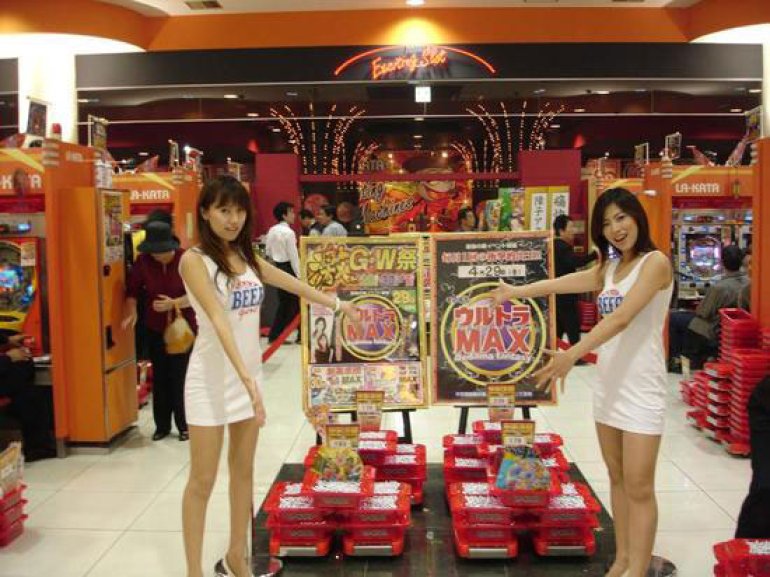
Nowadays, gambling in Japan is a sleeping giant. The country banned almost all gambling games, except for lotteries, football betting, racing betting, and betting on bicycle, motorcycle, and boat races. The legislation also prohibits casinos.
Pachinko
The roar of tiny metal balls combines with fast Japanese pop music. Brightly shining slot machines are arranged in long rows. It is crowded there, and you can see the Japanese from all social classes: men in dark suits and white shirts, elderly ladies, and young men in faded T-shirts. They all look hopeful at the silver balls falling while spinning the wheel. They are looking at flashing lights and short animations that can be observed on the screen.
Again and again, they insert their money into the slot machine, hoping to hit the jackpot.
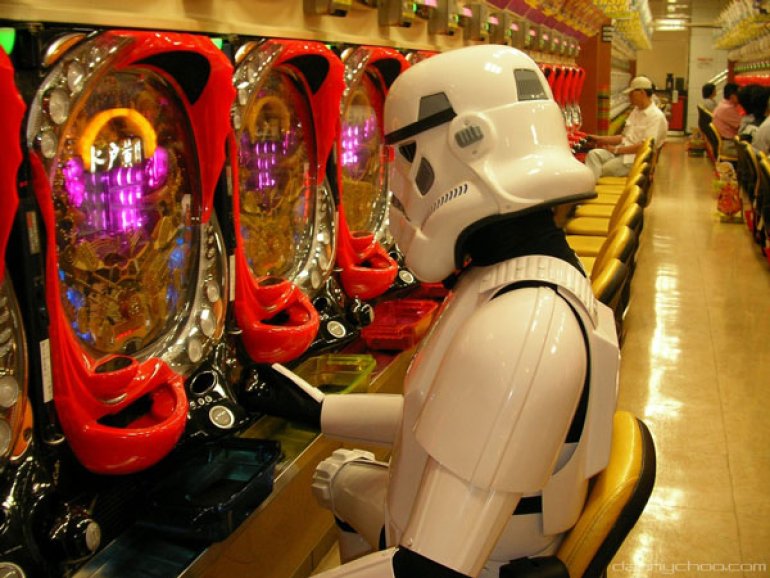
The game they enjoy so passionately is called Pachinko. It is not very widespread in Europe, but it is one of the most popular games in Japan. More than 16 million Japanese play pachinko regularly. Professional players can even notice the most profitable arrangement of pins in pachinko machines. So-called Pachinko halls can be found everywhere, both in Tokyo and any of Japan's small towns.
The pachinko industry has an annual turnover that exceeds $200 billion.
The same budget as Toyota Motor Corporation. This video allows you to become familiar with Pachinko and evaluate the atmosphere of Pachinko halls.
This game dates back to 1930 but became widespread only after the Second World War. At that time, pachinko was frequently the only way to spend free time. It is supposed that Pachinko became so popular because the Japanese military aircraft industry required a method to recycle the surplus of ball bearings. Cigarettes served as prizes since getting them in post-war Japan was very difficult.
Pachinko is a mix of pinball and slot machines. The player purchases metal balls, inserts them into the pachinko machine, and tries to allow them to pass through the cascade of pins and channels, reaching small holes by adjusting the speed of launching balls with the help of the special lever. If the balls reach certain holes, the player can win.
Pachinko in Japan is not considered a game of chance. It's just an arcade game. Cash prizes are not provided for winners. Instead, chocolate bars, soft toys, cigarettes, pens, and even a tiny gold bar can be won. So-called TUC shops are usually located not far from the pachinko halls. There, users can exchange their prizes for cash.
Retired police officers work at such exchange offices. They sell prizes back to Pachinko halls. There is such a cycle of prizes.
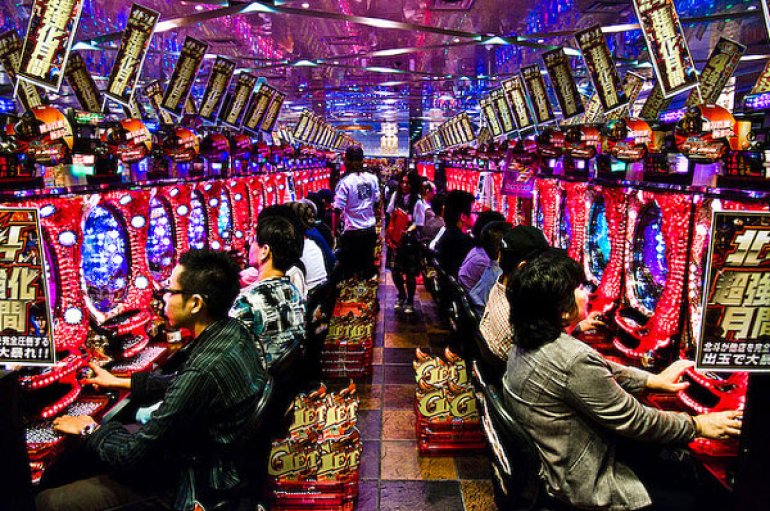
The success of these reasonably simple slot machines is not very understandable. After all, if we recall the traditional Japanese games, we can mention Go, one of the world's most complex board games. And the fact that millions of players enjoy Pachinko is fantastic. Perhaps the popularity of this game is explained by the low prices.
On average, 75 balls cost 100 yen or 75 cents. One fact is obvious: if 16 million people play Pachinko, a quite monotonous game, in Japan, the potential for other gambling games will be much higher.
Pros and Cons of Gambling Legalization
There are illegal casinos in Japan even now. However, they are illegal in the true sense of the word: their employees are members of the Japanese Mafia yakuza. Customers who like to leave their money on the blackjack or oichokabu (the Japanese version of baccarat) tables are also yakuza members. Ordinary people can hardly enter such casinos.
There are a lot of such casinos: over one thousand illegal casinos organized by the yakuza are available in Tokyo. Despite this criminal outlaw, Japanese lawmakers still want to legalize casinos and create the second Las Vegas in the country.
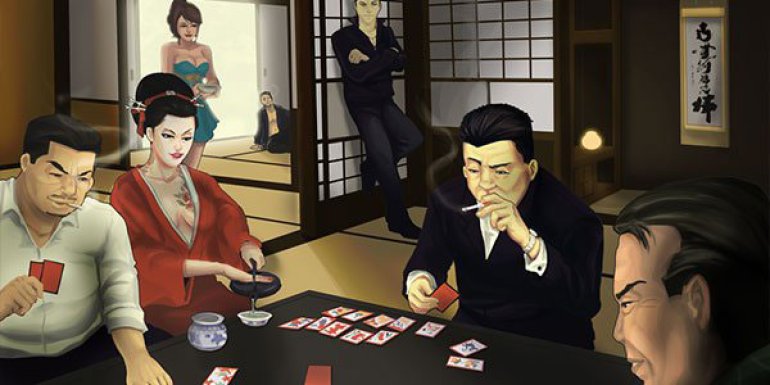
Those who support casinos justify their opinion from the economic point of view: the construction and activities of casino resorts will stimulate the Japanese economy and bring big profits to the state treasury. In addition, they believe that the prohibition of gambling is irrelevant since many Japanese people can visit casinos in South Korea, and taxes are not paid in Japan, respectively. Tokyo will be the host city of the 2020 Olympic Games. This may serve as the other factor contributing to the legalization of gambling by the authorities.
The opening of Japanese casinos is considered a possible source of income in the tourism industry, which has excellent potential for growth in Japan. Nowadays, Japan attracts a relatively small number of tourists from neighboring countries, including China, South Korea, and Russia. In the case of the legalization of gambling, Japan may hope that tourism can go beyond the political and historical differences between these countries.
Macau and Singapore have been great models for Japan in recent years. They have attracted players from all over the world. Japan is a country with its unique cultural traditions. It can become a solid alternative to these two relatively small centers of Asian gambling as a gaming operator.
Opponents of gambling legalization are conservative representatives of parents' committees who fear the spread of gambling in schools. The police warn against corruption, money laundering, and infiltration of the yakuza.
However, the biggest problem seems to be hidden: we are talking about the fact that the legalization of gambling can cause an epidemic of gambling addiction across the country. Nowadays, Japan is the world's largest gaming market, with an annual turnover of 150 billion dollars, even without casinos! Think about it! Only sports betting, lotteries, and Pachinko are responsible for such a turnover. And what will happen after the legalization of casinos?
"There are 100 million people in Japan who are all mad gamblers, but they are all doing it through horse racing and pachinko", - says James Packer, an Australian gaming tycoon.
If pachinko halls are closed in the morning, and players get in line to occupy the best machines at casinos with high betting limits as soon as possible, these gamblers will probably play all day and all night.
Such risks are not mentioned in the Japanese media, although due to the aging population, more and more older adults are spending their money playing Pachinko just because of boredom. Thus, legalizing casinos in Japan may be a Pandora's box.
Singapore Model
Shintaro Ishihara, then-Gov. of Tokyo, campaigned to legalize gambling in 1999. He even created a casino installation in the Office of the Governor to convince the audience of his idea. Ishihara believed that Japan could become the largest gambling market in the world.
The U.S. investment bank Union Gaming Group estimates the initial potential of annual gambling revenues at $8 billion, much higher than in Las Vegas.
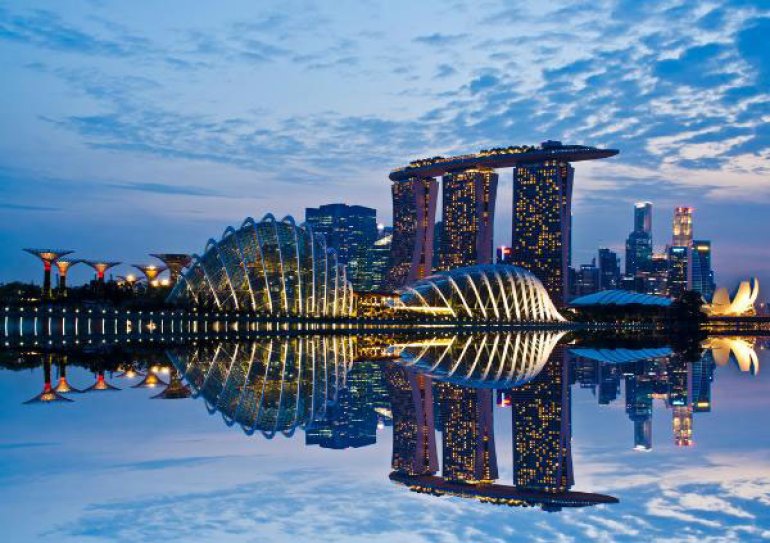
Resistance to legalizing gambling in Japan is dropping since the Japanese may observe the situation in Singapore, where gambling was legalized in 2005. And the Japanese can see a big difference between approaches to gambling in Las Vegas and Singapore. They don’t just focus on gambling: so-called "integrated resorts" were built in Singapore instead of traditional "temples of gambling." Apart from casinos, vast areas are full of luxury shops, cinemas, museums, theaters, sites for family recreation, and amusement parks.
Two gambling complexes in Singapore have turned into a Klondike for the state over ten years.
- The annual profit reached seven billion dollars, and 20,000 jobs were created.
- The number of tourists has increased by 60% since the opening of the first resort.
- Additional annual tax revenues to the treasury of Singapore reached 1.7 billion dollars.
Such orders of magnitude convince the Japanese that casinos are not so bad. Even on the contrary, they seem to be quite beneficial, especially if we take into account the fact that the Japanese economy is stagnant and requires growth drivers. The prices of goods, services, and real estate have been steady or even dropped over the last ten years, but now this period is ending. The Prime Minister of Japan, Shinzō Abe, wants to launch the printing press and stimulate inflation due to the huge government debt of 8.2 trillion dollars.
Tourism, which constantly brings money to the treasury since Japan annually attracts over 10 million tourists, can serve as such a driver. Analysts have estimated that constructing integrated casinos in Japan on the eve of the 2020 Olympic Games can increase the number of tourists by up to 30 million.
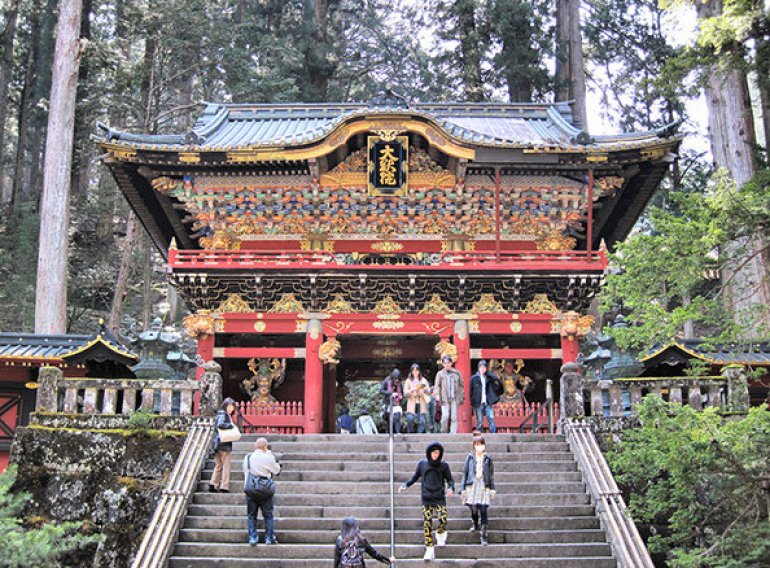
The problem of potential gambling addiction can also be solved using the example of Singapore, whose authorities restricted access: only foreign tourists have free access to casinos. Residents have to pay about $65 per ticket. Moreover, the number of slots and table games is limited. Almost half of the government revenue from gambling is provided for anti-gambling advertisements and the treatment of addicted gamblers. Even if there is the slightest suspicion of problem gambling, local players are blacklisted and may not visit casinos.
Parliamentary Debate
The draft law on the legalization of casinos was offered in November 2013. Nevertheless, discussions concerning this offer began only six months later. Being unable to reach an agreement, legislators sent this draft law back for revision.
In April of the previous year, the ruling Liberal Democratic Party offered a draft law on the legalization of gambling once again, hoping that this project would be adopted in the same year. However, it was not even considered in 2015 since lawmakers found more urgent issues for discussion.
This draft law was expected to come into force during the current legislative session. Still, the Japanese media reported that its consideration was postponed again since the ruling party and its coalition partner had a controversy over the legalization of gambling in the country. At this point, there are parliamentary debates in Japan, and we hope that this process will be speeded up shortly. Analysts believe that gambling will be available for the Japanese at most in 2017.
According to the draft law, two integrated resort casinos should be built by 2020. Gambling giants are negotiating with potential Japanese partners. The future Japanese Vegas will probably be located on the peninsula of Daiba in Tokyo Bay.
Proceeding at a Fast Pace
The largest gambling operators are opposing, such as MGM Resorts International, Wynn Resorts, Las Vegas Sands, and casino tycoons Lawrence Ho from Macau and James Packer from Australia. They are rubbing their hands, studying the prospects of integrated casino resorts nationwide. According to the brokerage firm CLSA, if Japan opens its market for casinos, the country will generate annual revenue that exceeds $40 billion, making Japan a major player in the global gambling market.
Sheldon Adelson, the CEO of Las Vegas Sands Corporation, has announced that he wants to spend $10 billion on constructing casinos in Japan. This 80-year-old businessman, who is considered to be the father of modern gambling, focuses on Japan. Why? The reason is simple. Japan is the third-largest economy in the world, where gambling is prohibited. If we mention that Japan will host the 2020 Olympic Games, the potential of new casinos looks fantastic.
Where will new casinos be built? Adelson said he would build casinos only in densely populated cities such as Tokyo and Osaka to exploit the available tourist infrastructure. Las Vegas Sands has already spent a lot of time and money on opening offices and hiring staff in Japan. There are rumors that Adelson has already agreed to cooperate with major Japanese companies, such as M88.
Considering that Sheldon Adelson has a good nose and always appears in the right place at the right time, the probability of gambling legalization in Japan is very high. There is an old Japanese phrase: nomu, utsu, kau (drinking, gambling, and lechery), which describes a lecherous samurai. Japanese leaders will be able to overcome the cultural hostility to gambling by 2016-17, and Japan will become an "addicted samurai."




























